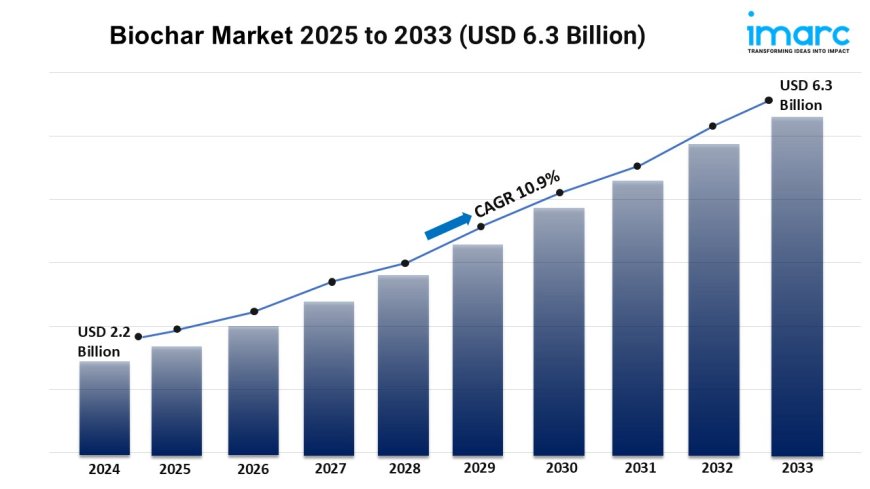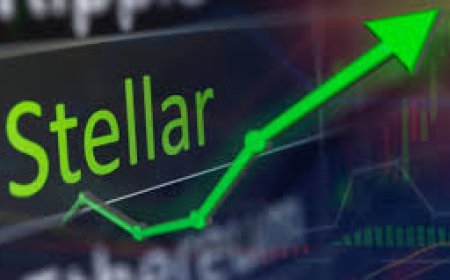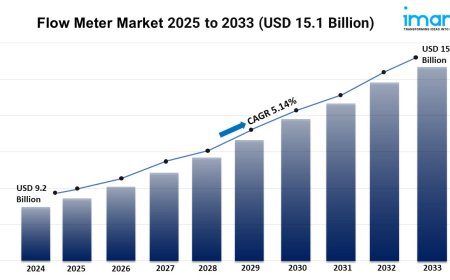Biochar Market Report 2025 | Growth, Trends, and Forecast by 2033
The global biochar market size was valued at USD 2.2 Billion in 2024. Looking forward, IMARC Group estimates the market to reach USD 6.3 Billion by 2033, exhibiting a CAGR of 10.9% from 2025-2033.

Market Overview:
The biochar market is experiencing rapid growth, driven by increasing demand for sustainable agriculture, advancements in production technology, and rising focus on carbon sequestration. According to IMARC Group's latest research publication, "Biochar Market: Global Industry Trends, Share, Size, Growth, Opportunity and Forecast 2025-2033", The global biochar market size was valuedatUSD 2.2 Billionin 2024. Looking forward, IMARC Group estimates the market to reachUSD 6.3 Billionby 2033, exhibiting aCAGR of 10.9%from2025-2033.
This detailed analysis primarily encompasses industry size, business trends, market share, key growth factors, and regional forecasts. The report offers a comprehensive overview and integrates research findings, market assessments, and data from different sources. It also includes pivotal market dynamics like drivers and challenges, while also highlighting growth opportunities, financial insights, technological improvements, emerging trends, and innovations. Besides this, the report provides regional market evaluation, along with a competitive landscape analysis.
Grab a sample PDF of this report: https://www.imarcgroup.com/biochar-market/requestsample
Our report includes:
- Market Dynamics
- Market Trends And Market Outlook
- Competitive Analysis
- Industry Segmentation
- Strategic Recommendations
Growth Factors in the Biochar Market
- Increasing Demand for Sustainable Agriculture:
The rising demand for sustainable agricultural practices is a significant driver for the biochar market. Biochar, a carbon-rich material produced from organic waste, enhances soil fertility, improves water retention, and reduces the need for chemical fertilizers. Farmers are increasingly adopting biochar to boost crop yields while minimizing environmental impact. For instance, in Australia, vineyards have used biochar to improve soil health, resulting in healthier grapevines and reduced irrigation needs. This trend is fueled by growing consumer awareness of eco-friendly food production and government incentives for sustainable farming, making biochar a cornerstone of modern agriculture. The global biochar market size growth projection 2023 report, according to a report by the International Biochar Initiative (IBI) and the US Biochar Initiative (USBI), with projections for significant future growth.
- Advancements in Production Technology:
Innovations in biochar production technology are propelling market growth by making production more efficient and cost-effective. Pyrolysis, the primary method for creating biochar, has seen improvements through advanced reactors that optimize energy use and increase output quality. Small-scale, mobile pyrolysis units are now available, enabling farmers in remote areas to produce biochar on-site. For example, a community project in Kenya uses portable pyrolysis kilns to convert agricultural waste into biochar, empowering local farmers to improve soil quality. These technological advancements make biochar more accessible and scalable, driving its adoption across diverse industries.
- Rising Focus on Carbon Sequestration:
The global emphasis on combating climate change has positioned biochar as a key tool for carbon sequestration. Biochars ability to lock carbon in the soil for centuries makes it an attractive solution for reducing greenhouse gas emissions. Governments and organizations are increasingly supporting biochar projects to meet carbon neutrality goals. A notable example is the European Unions funding of biochar initiatives in Sweden, where biochar is used in urban green spaces to sequester carbon while improving soil conditions. This focus on environmental sustainability is driving investment and research, further expanding the biochar market.
Key Trends in the Biochar Market
- Integration with Circular Economy Models:
The biochar market is seeing a trend toward integration with circular economy principles, where waste is transformed into valuable resources. Biochar is produced from organic waste such as crop residues, forestry by-products, and municipal waste, aligning with zero-waste goals. In the United States, companies like Biochar Now are partnering with municipalities to convert organic waste into biochar for use in landscaping and agriculture. This trend not only reduces landfill waste but also creates a sustainable revenue stream for businesses, making biochar a pivotal component of circular economy strategies worldwide.
- Expansion in Non-Agricultural Applications:
Biochar is gaining traction in non-agricultural sectors, such as water treatment, construction, and energy production. Its porous structure makes it an effective filtration medium for removing contaminants from water, while its durability is being explored in eco-friendly construction materials. For example, in Singapore, biochar is used in water filtration systems to treat stormwater runoff, improving urban water quality. Additionally, biochars potential as a renewable energy source during production (via syngas) is attracting interest. This diversification of applications is broadening the markets scope and attracting new industries to invest in biochar solutions.
- Growing Research and Policy Support:
Increased research and supportive policies are shaping the biochar markets growth trajectory. Universities and research institutions are exploring biochars applications, from soil enhancement to industrial uses, driving innovation. Governments are also implementing policies to promote biochar adoption. In Brazil, for instance, research programs supported by the government have demonstrated biochars ability to restore degraded Amazonian soils, encouraging its use among local farmers. Policy frameworks, such as subsidies for biochar production and carbon credit schemes, are incentivizing businesses and farmers to adopt biochar, fostering a robust market ecosystem backed by scientific validation and regulatory support.
Leading Companies Operating in the Global Biochar Industry:
- Agri-tech Producers
- Diacarbon Energy Inc
- Cool Planet
- Pacific Biochar
- Phoenix Energy
- Biomacon GmbH
- Vega Biofuels
- Terra Char
- Avello Bioenergy
- Genesis Industries
- Interra Energy Services
- Element C6
- Carbon Gold Ltd
- Biochar Solution Ltd
Biochar Market Report Segmentation:
Breakup By Feedstock Type:
- Woody Biomass
- Agricultural Waste
- Animal Manure
- Others
Woody biomass represents the largest segment due to its abundance and favorable characteristics for biochar production.
Breakup By Technology Type:
- Slow Pyrolysis
- Fast Pyrolysis
- Gasification
- Hydrothermal Carbonization
- Others
Slow pyrolysis accounts for the majority of the market share as it offers versatility in feedstock selection, allowing a wide range of biomass materials, including agricultural residues, forestry waste, and organic municipal waste, to be converted into biochar.
Breakup By Product Form:
- Coarse and Fine Chips
- Fine Powder
- Pellets, Granules and Prills
- Liquid Suspension
Based on the product form, the market has been divided into coarse and fine chips, fine powder, pellets, granules, and prills, and liquid suspension.
Breakup By Application:
- Farming
- Gardening
- Livestock Feed
- Soil, Water and Air Treatment
- Others
Farming holds the biggest market share owing to its multifaceted benefits across agricultural practices.
Breakup By Region:
- North America (United States, Canada)
- Asia Pacific (China, Japan, India, South Korea, Australia, Indonesia, Others)
- Europe (Germany, France, United Kingdom, Italy, Spain, Russia, Others)
- Latin America (Brazil, Mexico, Others)
- Middle East and Africa
North America enjoys the leading position in the biochar market on account of its increasing focus on renewable energy and waste management.
Research Methodology:
The report employs a comprehensive research methodology, combining primary and secondary data sources to validate findings. It includes market assessments, surveys, expert opinions, and data triangulation techniques to ensure accuracy and reliability.
Note: If you require specific details, data, or insights that are not currently included in the scope of this report, we are happy to accommodate your request. As part of our customization service, we will gather and provide the additional information you need, tailored to your specific requirements. Please let us know your exact needs, and we will ensure the report is updated accordingly to meet your expectations.
About Us:
IMARC Group is a global management consulting firm that helps the worlds most ambitious changemakers to create a lasting impact. The company provide a comprehensive suite of market entry and expansion services. IMARC offerings include thorough market assessment, feasibility studies, company incorporation assistance, factory setup support, regulatory approvals and licensing navigation, branding, marketing and sales strategies, competitive landscape and benchmarking analyses, pricing and cost research, and procurement research.
Contact Us:
IMARC Group
134 N 4th St. Brooklyn, NY 11249, USA
Email: sales@imarcgroup.com
Tel No:(D) +91 120 433 0800
United States: +1-631-791-1145




















